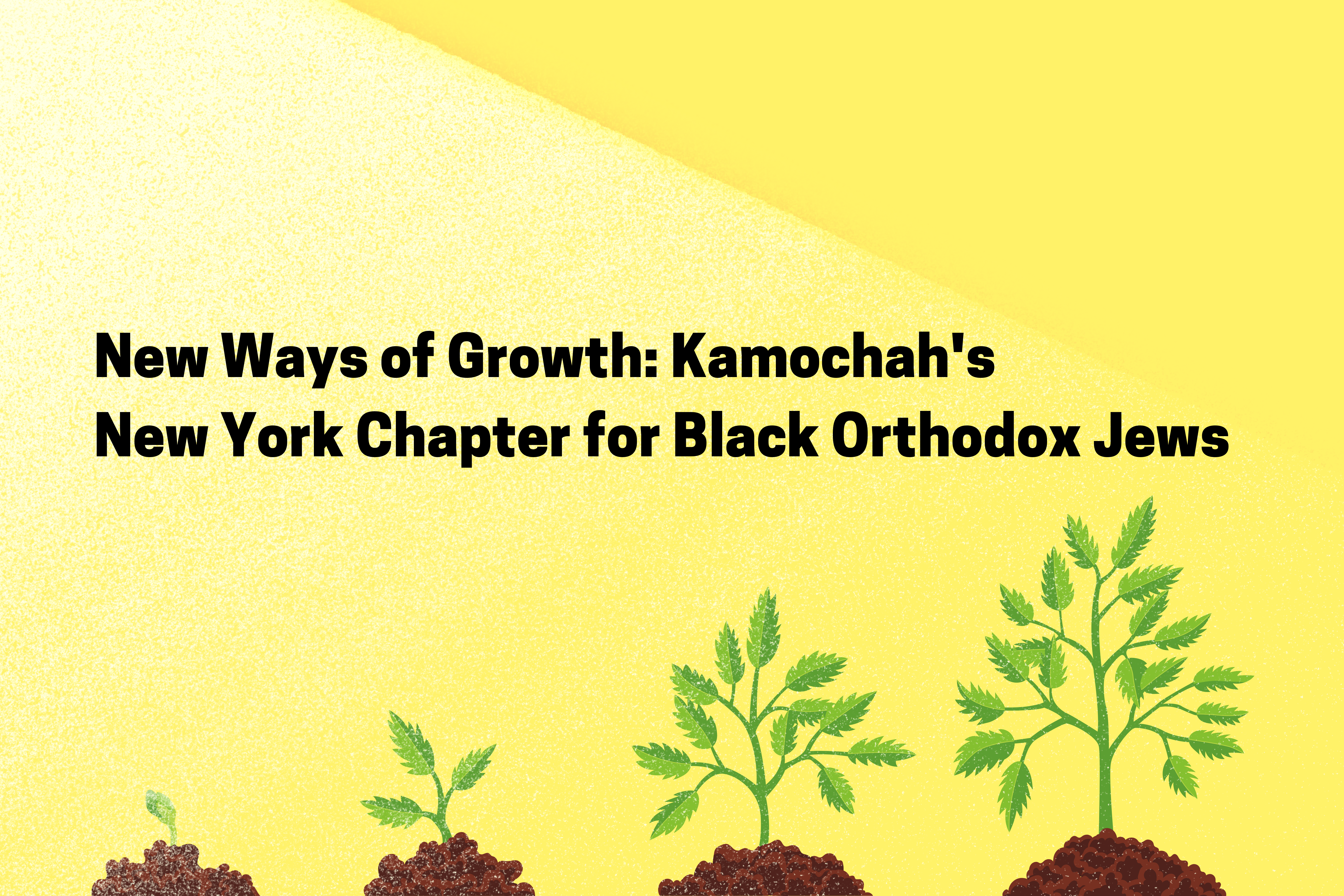
In the summer of 2020, amidst the murder of George Floyd and the subsequent uprisings, a small group of Black Orthodox Jews were doing what they have been doing for decades: gathering for music, prayer, and connection. “It was a space for us to talk about how we were doing, how our week was going, if we needed extra support from one another or from the broader Black Jewish world,” shared Maayan Zik. With growing racial tensions in America, and protests taking place throughout the world, Black Orthodox Jews felt the void, knowing there was not a single Jewish organization to cater to their unique needs.
“The discussion of how Black Jews are treated in the Jewish Orthodox space—and in the Jewish world at large—came up. Black Jews became a bit more visible,” Zik said, “and organizations were paying attention to Jews of Color.” During that summer, Rabbi Isaiah Rothstein, a Black Jew ordained at Yeshiva University, asked a few friends to get together to be in community. Zik described these gatherings as meaningful points of connection to be in community with other Black Jews at a time of heightened racial tensions. The mood was set with song, a d’var torah, and a chance for each person in the group to metaphorically “pass the mic around.”
That was when four friends, Chava Shervington, Maayan Zik, Rabbi Yonosan Perry and Rabbi Isaiah Rothstein started Kamochah, the only organization serving Black Orthodox Jews, and Orthodox Jews of Color.
Discussing organizational roles and leadership, Zik described each leader of Kamochah not only by their position titles, but by the type of leadership they bring to the team. Rabbi Perry, who is Director of Education and Outreach, was described as the community’s teacher. Rabbi Rothstein, Director of Strategy and Partnerships, operates like a connector or relationship builder across the community, expanding Kamochah’s network and impact. Zik described Chava Shervington, Managing Director, as the leader or decision-maker of the team. Zik described herself, Director of Communications, as the creative and the Kamochah cheerleader, as she is eager to spread the word about the organization. “I’m really proud of Kamochah and love to share it with others.”
Since their beginning, Kamochah has expanded their vision to aim for a wider national reach. The team decided to do so by establishing Kamochah chapters in different cities across the U.S.: Los Angeles, Baltimore, and New York City.
Kamochah is now part of the Jews of Color Initiative New York Hub’s Incubator, a program designed to help scale organizations to the next stage of their project. Their focus in the Incubator will be fleshing out their New York chapter.
“The benefits of the pandemic have been this virtual atmosphere for organizing. But that’s not always going to be our focus. We want to develop more in-person community gatherings and get-togethers.” Zik said that she believes the Incubator will “really help Kamochah to bud and grow in the best way it possibly can, G’d willing.”
Zik said that for her, one of the primary goals of the New York chapter is to develop more programming to engage Black Jewish youth, Orthodox or not. “One of the most important things is helping Black Jewish youth feel more connected.” Zik shared that community members who are parents often reach out to them unsure of where to turn to maintain their Black Jewish child’s connectedness to the Jewish community in the face of racism. While the New York chapter will also be in service to Black Jewish adults, Zik said that “there’s really something about the youth, our children, that we want to be a big support for them. We want that connection and for them to grow up knowing ‘yes, I have this community I can really relate to and we are here to help and support each other.’”
Zik emphasized that increased visibility and familiarity with Black Jewish community members and leaders can hopefully move the needle on what she called the “surprise factor” of seeing Black Jews engage Jewishly.
“One of the most important things is to see other Black Jews and Black rabbis out there in the world teaching Torah, having fun, so it becomes more normalized and it’s not such a surprise when a Black rabbi starts speaking Torah. It won’t be this surprise factor, it will just be like ‘oh he’s Jewish, he’s reading Torah.’”
Zik expressed ample enthusiasm for the work Kamochah plans to do as part of the Incubator cohort. “We’re a budding organization. I’m hoping it will help us to grow in ways that we may not have seen, that it will open up pathways for us that we may not have seen ourselves since we’ve been so in the weeds, so to speak, with the process of launching the organization. Perhaps a step back from the daily work we’re doing internally can start to enter bigger spaces and network with more organizations. It can open us up to new possibilities and new ways of growth.”
Eager to be part of a cohort and a program that fosters creative strategizing, Zik said she’s looking forward to “thinking outside of the box” to bring their New York chapter to life.
You can learn more about the New York Hub’s Incubator with our FAQs.


